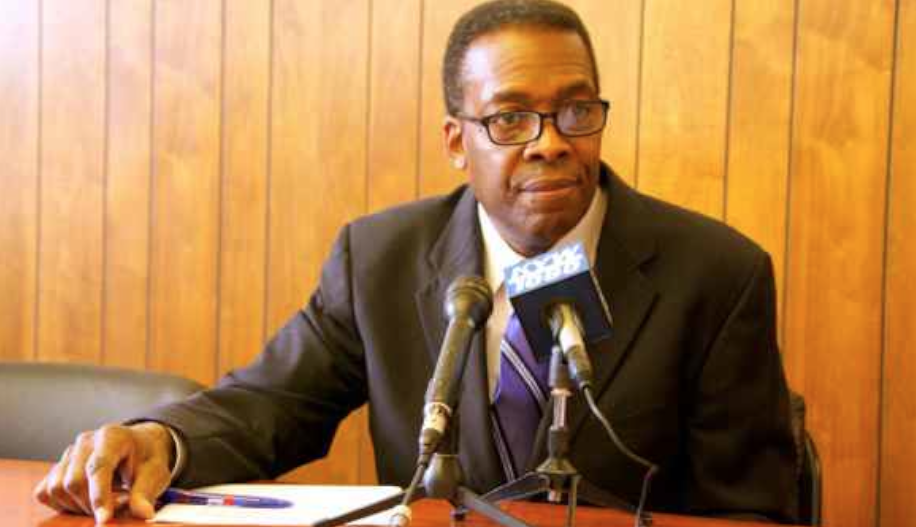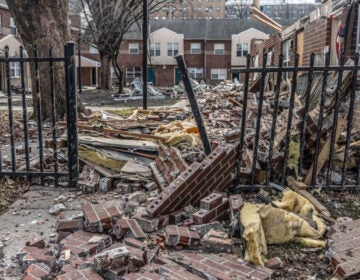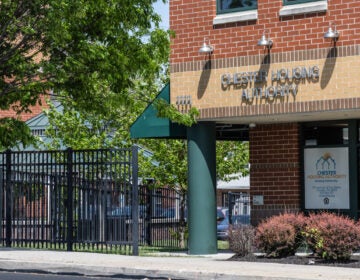Anti-foreclosure bill improved after summerlong simmer, officials say

UPDATE: The bill passed on Oct. 5, 2017.
On Thursday, City Council advanced amendments to legislation passed last June that would reduce tax foreclosures, but never was enacted due to a quirk of legislative timing.
The bill, championed by Council President Darrell Clarke, was the subject of negotiations with Mayor Jim Kenney’s administration over the summer. The amended legislation is expected to pass next week.
Clarke’s bill is meant to cover the 13 percent of Philadelphia homeowners who live in deep poverty, defined as a household income half that of the federal poverty level ($28,290 for a family of four). It creates a tax foreclosure diversion program, one modelled on the city’s successful mortgage foreclosure diversion program. It would also allow low-income homeowners to defer payment of the taxes they don’t have the cash on-hand to cover, thus keeping them out of foreclosure and in their homes.
Originally passed at the end of last session, the bill went unsigned by Mayor Kenney and has been stuck in limbo for the past several months. Usually, if the mayor doesn’t sign or veto a bill within ten days of its passage, then it still becomes law. But City Council passed the original tax foreclosure relief bill in late June, with less than ten days left in the session, so the bill went into suspension over the summer.
In the interim Clarke’s office discussed possible amendments to the bill with the administration and Community Legal Services (CLS). Clarke then recalled the bill last week, so the fruits of the summer’s conversations could sweeten a freshly introduced bill .
“We recalled it last week because there was some more substantive conversation between CLS, administration, and council,” said Clarke. “Usually, when you do work, if everyone hates you probably did the right thing. Or if everyone loves it, you probably did the right thing. In this case, everybody loves it.”
Supporters of the original legislation argued that the Revenue Department had substantially increased enforcement against low-income tax delinquent homeowners in recent years, especially in majority-minority neighborhoods. Clarke’s office produced numbers showing that tax foreclosure petitions had greatly increased in the last half decade, with over 10,000 being filed annually for the past several years. The average amount owed by these impoverished homeowners amounted to about $5,000, but according to Clarke, foreclosing on them would cost the city nearly triple that amount in additional social services.
The original bill established a right access to a housing counsellor for every delinquent taxpayer who fell within the income eligibility limits. It set up clear income-based guidelines laying out four income tiers at which tax deferrals could be granted, dictating the levels at which struggling homeowners could be granted relief.
But the administration didn’t want the details of the tax diversion plan enshrined in law. Instead they wanted council to just enact the policy framework, allowing the administration the flexibility to work out the details of the program through internal regulation. Clarke’s office agreed.
“Sometimes we [City Council] establish regulations that aren’t realistic,” said Clarke. “This will be much more achievable. We pass legislation but, at the end of the day, it’s the executive branch that has to implement the program. We believe that if you can get everyone on board we can ensure 100 percent implementation [without exacting statutory details].”
The amendments approved by council today no longer specify income guidelines for admittance the tax deferral program. Nor does it guarantee a right to counselling. The language has been softened to instead give beleaguered homeowners the right to apply for such assistance. The amendments thus ensure the Revenue Department’s discretion over who receives the benefits.
Advocates were wary of these changes.
“This is step in the right direction, but it doesn’t set up the bright lines about deferral that the old legislation did,” said Monty Wilson, a lawyer with Community Legal Services who helped craft the legislation. “You have a right to apply, that’s not the same as what you get in the mortgage foreclosure prevention program. You aren’t required to get a housing counselor anymore. If the city really implements this program this could still be terrific, but the devil will be in the details.”
The amendments also seek to ensure distressed homeowners can access the Pennsylvania Senior Citizen Real Property Tax Rebate, which offers those eligible as much as $975 rebate every month. The bill will allow homeowners to pay their current year taxes in order to qualify for the rebate, rather than needing to pay back all back taxes from years prior. Afterward, the money from the rebate can be used to, say, pay off older delinquent taxes.
According to Wilson, the Revenue Department should be done drafting regulation to dictate the details of the tax deferral and housing counselling programs by the end of the year. Although he’s confident that the administration is acting in good faith, he says he’ll rest a lot easier when those regulations are finally issued.
“We should have an idea of what this will look like in 90 days,” said Wilson. “Do I believe they mean it? Yes, I do. But this bill now lacks a lot of detail, where previously it did not.”
WHYY is your source for fact-based, in-depth journalism and information. As a nonprofit organization, we rely on financial support from readers like you. Please give today.







